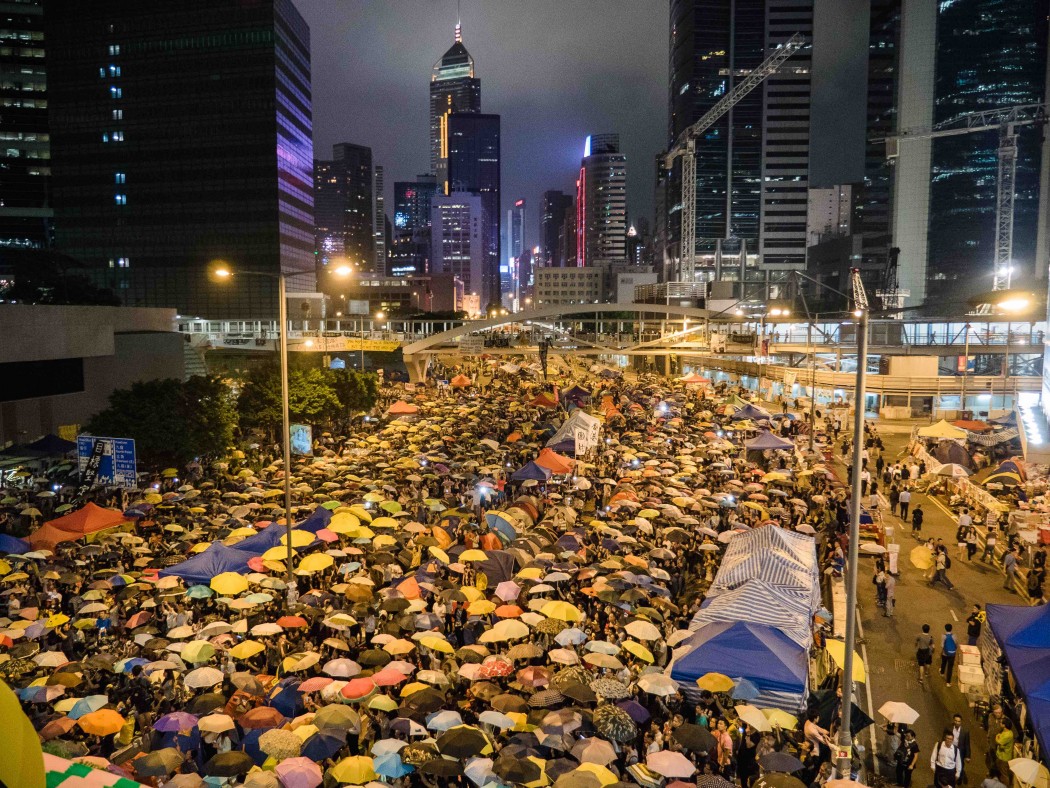Critics have weighed in on a new television series featuring scenes from Hong Kong’s 2014 pro-democracy protests that cannot be viewed in the city.

While some found fault in Expats‘ portrayal of privilege and detachment, others appreciated its exploration of Hong Kong’s identity politics.
NPR
NPR pop culture correspondent Linda Holmes’ review, – titled “Nicole Kidman leads an ensemble of privileged, disconnected American ‘Expats’” – took aim at the “rich-person melodrama” which had “nothing to say about Hong Kong or about expats [.]”
She wrote: “It was a bitter pill, it seems, that this production about rich outsiders who paid little attention to the lives of ordinary people in Hong Kong was being given a blessing to hand-wave regulations meant to protect those same ordinary people.”
She was referring to the Hong Kong government’s decision to waive Covid-19 quarantine requirements for Kidman and several other crew members during filming in 2021. The exemption made international news, at a time when dissatisfaction was mounting over regulations that were perceived as excessive.
In various interviews with US entertainment media, series director Lulu Wang said Expats “interrogates privilege,” and the novel from which Expats was adapted – Janice Y. K. Lee’s The Expatriates – was lauded as a “vibrant social satire” in a 2016 New York Times review.
Yet, to Holmes, Expats panned out as a “good-looking rich-people melodrama,” in which its setting is relegated simply as “scenery.”
See also: ‘Expats’: Amazon show with Umbrella Movement protest scenes not shown in city
“Maybe it’s better than nothing that Expats acknowledges the existence of the strife in Hong Kong, even if it does so very non-specifically,” Holmes writes, noting “growing” censorship laws in Hong Kong.
It’s like showing up at a billionaire’s house and taking 100 pictures of the koi pond from every angle, while the house is burning down behind you.
NPR pop culture correspondent Linda Holmes
“Moreover, it’s a project that invites you, right from its title, to be bewildered by its indifference to life in Hong Kong. It’s like showing up at a billionaire’s house and taking 100 pictures of the koi pond from every angle, while the house is burning down behind you. There’s nothing wrong with the photos you’ve taken, but there is the feeling you could have captured something far more worthy of your attention by just turning your head,” she writes.
The Guardian
To the Guardian’s Lucy Mangan, Expats “plays out against the backdrop of civic unrest.”
The fifth episode, titled Central, which follows a pair of student protesters and, separately, a migrant domestic worker, is “moving, even if it doesn’t properly connect to anything that has gone before or comes after.”
“It feels less like an organic part of the drama than a nod to those seeking more than another look at the gilded but discontented lives of the elite. But, the fifth episode aside, this is all Expats really amounts to. It looks great and there are some fine performances … but we have seen it all before,” Mangan writes.
Political backdrop aside, the titular expats’ personal struggles “[set] the stage for a languorous – soporific? – meditation on grief, guilt, classism, capitalist greed, the disingenuousness of the rich, racism, emotional and geographical dislocation.”
Los Angeles Times
For the LA Times’ Jireh Deng, Wang “treats Hong Kong as another main character,” as the premise of the series contends with the racial politics of the city: “It fleshes out a world that feels rooted in the reality of Hong Kong’s nuanced politics around race and gender.”

Deng calls Wang an “insider” as a “native Mandarin speaker” in Hong Kong, where the usual spoken language of almost 90 per cent of the population is Cantonese.
“When we talk about diversity, it’s not through an American lens. It’s through a much more global lens because even Asian American as a category in America is challenging in many ways because it is a huge continent,” Wang is quoted as saying in the Times review.
“I think in recent years, for me, I’ve really seen Hong Kong defined because so many people have left so you can’t say that it’s defined by those borders,” said Wang, who on Sunday stressed the importance of “defending” Cantonese on X, calling it a “dying language”.
“Wang doesn’t consider ‘Expats’ to be political, but she also doesn’t shy away from showing Hong Kong’s thorny politics, including the Umbrella Movement,” Deng writes, referring to the 79-day long pro-democracy civil disobedience campaign in 2014.
Thus far, the show has received mediocre ratings from the public, achieving 3.0 stars on Google, 6/10 on IMDb and 74% approval on Rotten Tomatoes.
Support HKFP | Policies & Ethics | Error/typo? | Contact Us | Newsletter | Transparency & Annual Report | Apps
Help safeguard press freedom & keep HKFP free for all readers by supporting our team

LATEST FROM HKFP
HKFP has an impartial stance, transparent funding, and balanced coverage guided by an Ethics Code and Corrections Policy.
Support press freedom & help us surpass 1,000 monthly Patrons: 100% independent, governed by an ethics code & not-for-profit.











